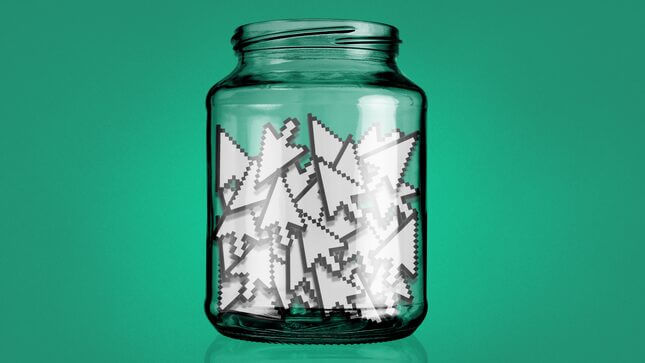The Real Bailout is Happening on GoFundMe
Latest
Illustration: Jim Cooke
Susan Arnold, a 58-year-old Uber driver in Chicago, first became acquainted with GoFundMe last year, when she helped a friend get the word out about his campaign. As with many posts on the crowdfunding website, he was appealing for donations to help with a medical issue exacerbated by external forces: The friend lived in a car and had been diagnosed with macular degeneration. Unable to find work, he was going blind.
In mid-March, it was her turn. Arnold and her 68-year-old husband, both diabetic, watched their Uber fares drop in tandem with restaurant and bar closures. They had been offering hand sanitizer to riders and wiping down their cars after every trip, but it felt inevitable that they would need to stop working soon. The thought of abruptly losing their livelihood “sent me into a panic,” says Arnold. Ten years before, following a series of more subtle but still devastating crises, the Arnolds lost everything they had. They say they are terrified of it happening again.
“The GoFundMe is allowing us to limp along during this time.”
Remembering her friend’s GoFundMe campaign, Arnold became one of the nearly 35,000 people to crowdfund on the service for needs related to covid-19, part of a massive spike we found in the service’s posts during the month of March. When we first spoke, the Arnolds had less than $50 in their bank accounts but, thanks to the roughly $1,700 raised through the platform, were able to make April rent and pay basic bills. What they’ll do this month is the subject of some anxiety, but Arnold says “the GoFundMe is allowing us to limp along during this time.”
GoFundMe campaigns for medical issues are rarely about just the treatment. In the United States, matters of health are inseparable from the cycles of debt and disaster that attend an unexpected bill. In the ten years since GoFundMe launched, it has become the stop-gap of choice for people betrayed by their bodies and circumstances: The platform originally intended for wedding registries and charity donations said last year one-third of its users are looking to offset a healthcare cost. In early 2019, one of the company’s founders described watching his optimistic startup turn into the country’s default safety net: “Politicians are failing us,” he said at the time. “Health care companies are failing us.”
-

-

-

-

-

-

-

-

-

-

-

-

-

-

-

-

-

-

-

-

-

-

-

-

-

-

-

-

-

-

-

-

-

-

-

-

-

-

-

-








































